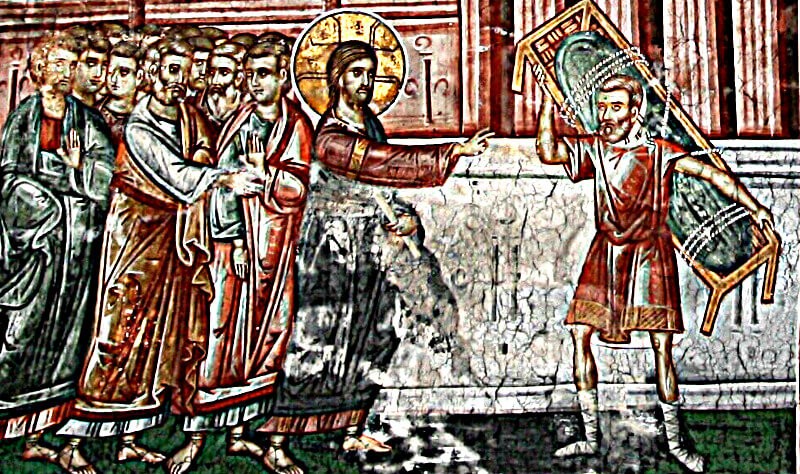HOW IS THE “PARALYTIC” PARALYZED?
(Sunday, May 7)
On this “Sunday of the Paralytic,” when in our churches we celebrate the healing of a man who had been at the Pool of Bethesda “in his infirmity” for thirty-eight years, I’m wondering why in our tradition we call him “the paralytic.” Physically he was not entirely paralyzed. He was able somehow to move, albeit slowly, without outside help. We can see that from his response to the Lord’s question, “Do you want to be made well?” to which the man responds, “Sir, I have no man to put me into the pool when the water is stirred up; but *while I am coming*, another steps down before me.” (Jn 5:7)
I think his paralysis was spiritual, in that he could no longer ask for help, nor even dare to *want* to be made well, even when a Helper more powerful than all others stood before him. This is the kind of paralysis we might experience every now and then, or even for many years, when we do not even try to ask God or others for the help we may desperately need. In this man’s case, the Lord Himself starts the conversation: “Do you want to be made well?” And although the man’s response is not exactly a “Yes,” it is enough for his healing to begin. I mean, his physical healing, after which the Lord urges him to tend to his spiritual healing: “See, you have been made well. Sin no more (miketi amartane), lest a worse thing come upon you.” What was the man’s “sin” (“a-martia” in Greek, which means “missing the mark”)? I don’t know exactly, but it involved self-isolation and not asking for help.
This morning it reminds me of our human tendency, every now and then, to self-isolate and disconnect from God and others, for example, in our addictions or other maladies, both physical and spiritual. “An addiction stems first and foremost from a lack of connection,” I read or heard somewhere. If we are stuck in this or some other similar kind of rut these days, let us hear the voice of our Lord, asking each of us: “Do you want to be made well?” And let’s respond, as best we can, regardless of our past disappointments, failures or rejections. Our past is not a bed in which we are meant to lie or wallow in self-isolation. Nor is it a bed we need to forget or deny. We can pick up our “bed” and walk, as did the man at Bethesda, so we can connect with others and also benefit others, through our newfound experience, strength, and hope. Lord, help me to help myself this morning, as I reach out to You and others as best I can.






